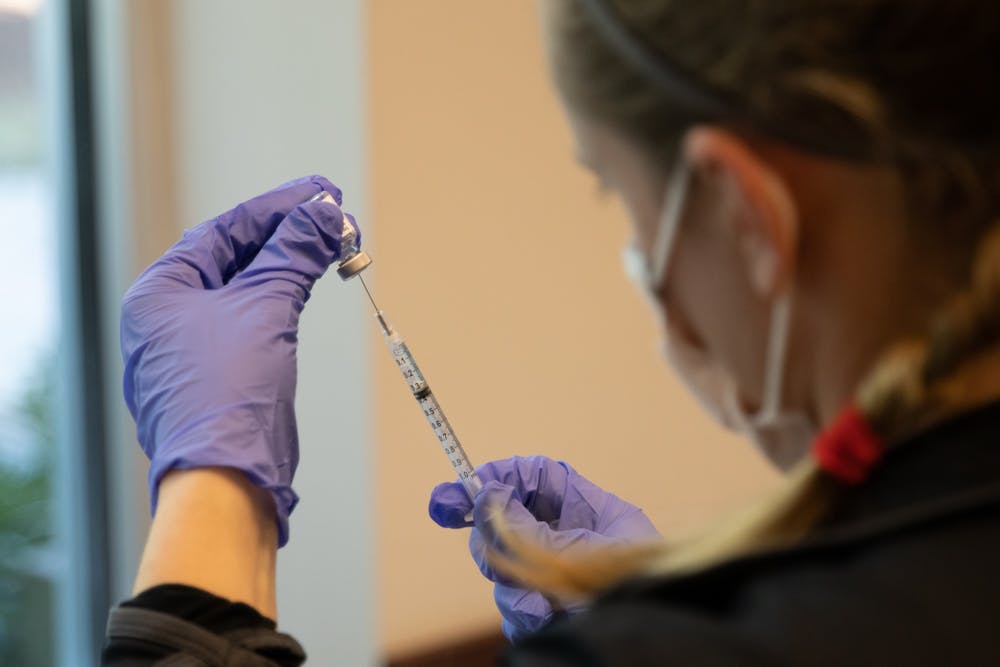With just over 1.2 million residents having received their second dose of the COVID-19 vaccine, the project of building resilience against the pandemic is well underway in North Carolina. But while the vaccine has proved to be a sign of hope for some, its distribution has been littered with ethical problems.
For one, issues of accessibility have intersected with issues of racial equity. Distribution of the vaccine has disproportionately favored white residents in North Carolina, with the proportion of Black and Hispanic residents vaccinated failing to reflect the state’s demographics.
While part of this is due to historical distrust of the health care industry (and for good reason), the discrepancy is also a result of technological barriers among minority communities. This presents both a logistical and ethical problem for how the state should manage vaccine distribution.
There are other issues that have become points of ethical concern. Reports of “vaccine tourism,” and, in some cases, young people or low-risk individuals skipping the line, have come to light in our state.
All of this begs the question, how should we weigh different interests and needs in a way that delivers the most ethical distribution of limited vaccine resources?
One way to address the problem would be to maximize the amount of “good” the vaccine offers the population (I’m trying to avoid saying utility). But “good” is pretty vague. One way we can think about maximizing “good” would be to allocate vaccines to minimize the spread of the virus.
While places like nursing homes and hospitals fall under this list and have in fact been among the first groups to be vaccinated, it may also include a place like UNC. This is because the prevalence of high-density situations like group living lends itself to rapid viral spread, which can have an impact on surrounding communities.
But vaccinating college students first seems to leave groups who are most vulnerable to the virus by the wayside. Black and brown communities, for example, have been hit harder by the pandemic than other demographic groups. And an approach that minimizes spread seems to ignore people with preexisting conditions that make COVID-19 a more dangerous prospect than a typical individual.
An ethical distribution of vaccines should account for both sets of interests: minimizing spread as much as possible while serving the needs of those most vulnerable. This approach not only allows us to maximize the total amount of “good” we get from the vaccine, but also attends to those groups hurting the most that might be left out of the equation.




